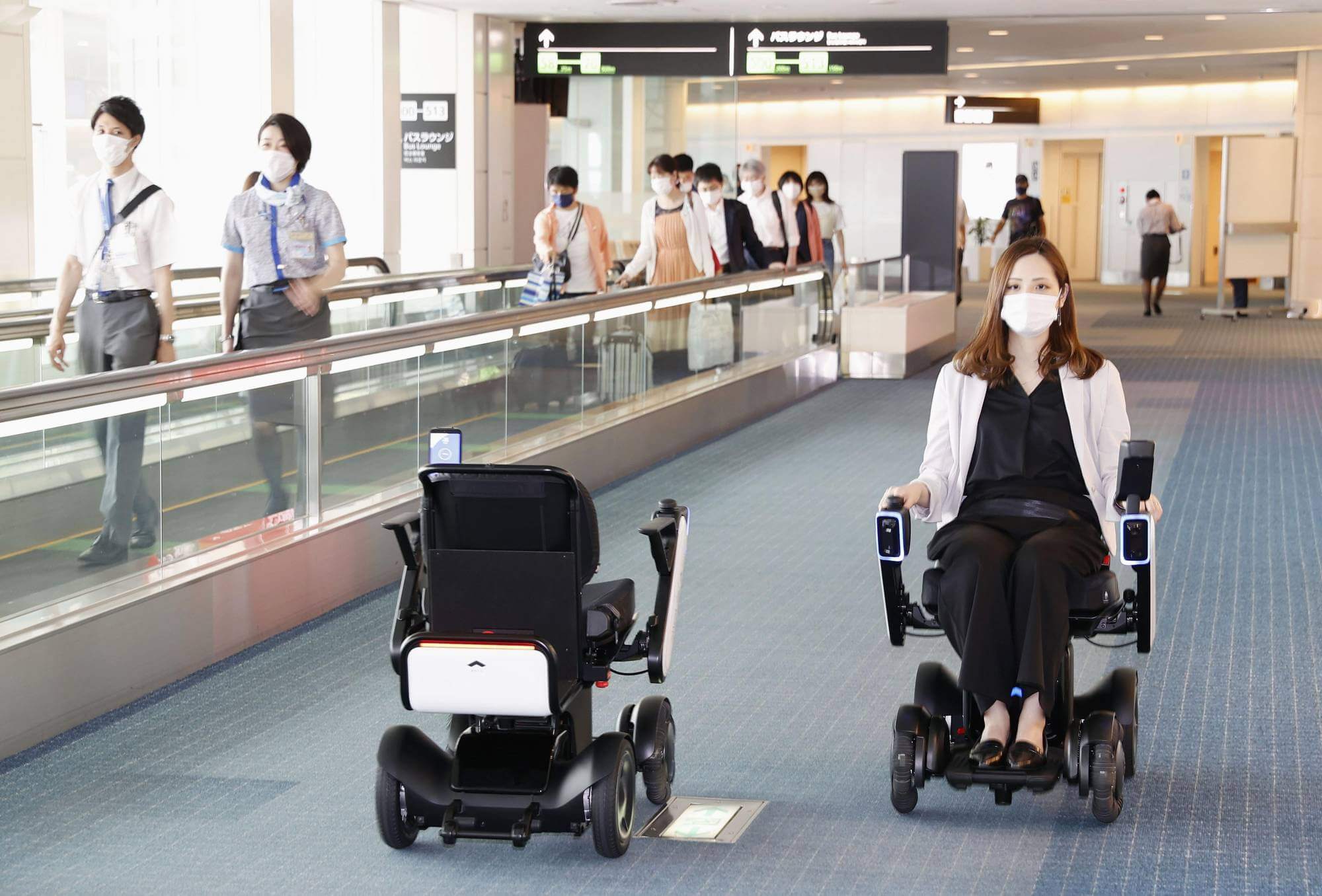Services to facilitate comfortable mobility for wheelchair users are becoming more widely available in Japan as part of attempts to eliminate inconveniences at train stations, airports or when getting on and off public transportation.
Operators hope that their services will help people in wheelchairs find it easy to go on trips.
Four air and land transportation companies have conducted a trial in which they shared information needed to help wheelchair users and supported smooth transits for them by working in relay.

In the test in February, All Nippon Airways, East Japan Railway Co., Tokyo Monorail Co. and Kyoto-based taxi operator MK Co. shared information entered by wheelchair users when booking airline tickets, such as the degree of assistance they need and their wheelchair characteristics.
The shared information enabled people in wheelchairs to request assistance in an integrated way.
Participants in the trial went from central Tokyo to Tokyo International Airport at Haneda via JR East’s Yamanote Line, and boarded flights to Osaka International Airport. Upon arrival, they traveled in Kyoto, Osaka and Hyogo prefectures by MK cabs.
Using location information from the participants’ smartphones, attendants and others were on standby at train stations and airports, saving the users the trouble of having to contact transportation companies individually to get transit assistance.
Nahoko Horie, a social welfare worker in a wheelchair who was involved in the development of the information-sharing system, often hesitates to travel because of difficulty getting around. She said she can make only one trip a year at most.
After taking part in the trial, however, she said with a smile, “I was very impressed with how smoothly I was able to move around.”
The two companies envision introducing the system at train stations, airports and commercial facilities.


Since the system also uses mobile phone signals, location information can be obtained even indoors and underground, although such settings are out of the reach of GPS signals. Since beacons used to determine indoor locations are not required, the system is helpful not only for wheelchair users but also for facility operators.
The companies aim to introduce the system at 100 facilities by the end of May 2023 to support comfortable travel.
In the third year of the coronavirus pandemic, travel demand has yet to take off in Japan.
With society now more attentive of mobility than ever, the companies hope that new technologies and services will enable people who need assistance to enjoy trips and outings without hesitation.
“Looking ahead to the post-coronavirus era, we want to create a world in which everyone can enjoy mobility without feeling stress,” said Isao Sato, general manager of JR East’s Technology Innovation Headquarters.
Post time: Dec-07-2022
